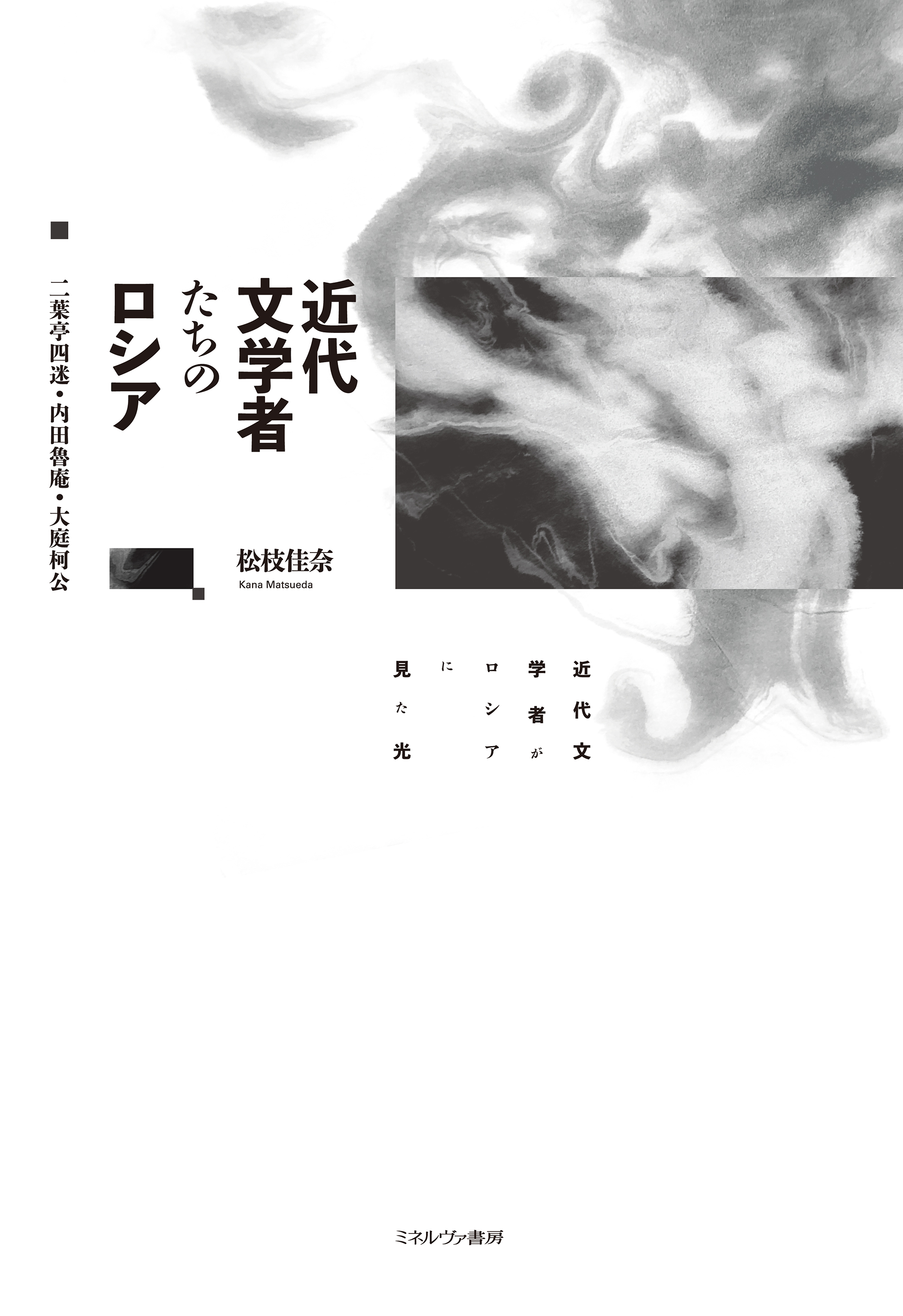
Title
Kindai Bungakusha no Russia (Men of Letter and Russia in Modern Japan - Futabatei Shimei, Uchida Roan, Oba Kako)
Size
552 pages, A5 format
Language
Japanese
Released
May 30, 2021
ISBN
9784623091188
Published by
Minerva Shobo
Book Info
See Book Availability at Library
Japanese Page
Futabatei Shimei, a man of letters of the Meiji era known for his novel Ukigumo (Drifting Clouds) and his translations of Russian literature, was in fact also a “Russianologist” with an overall understanding of Russia’s society and culture. He also aspired to become involved in journalism and public discourse, working for the Osaka Asahi Shimbun, one of the predecessors of today’s Asahi Shimbun.
Uchida Roan was a prolific writer in many fields with a lifelong interest in Russia who translated Dostoyevsky’s Crime and Punishment and discussed various issues related to Russia. The critic and essayist Ōba Kakō was a reporter for newspapers such as the Osaka Mainichi Shimbun, Tokyo Asahi Shimbun, and Yomiuri Shimbun in the early twentieth century and was sent as a correspondent to Tsarist Russia, where he became the first Japanese to accompany and report on the Russian army. After winning renown as a “Russianologist” in the Taishō era, he disappeared in Russia after the Russian Revolution. Roan and Ōba could be described as friends of the “Russianologist” Futabatei who best understood his activities and aspirations.
This book analyzes in detail for the first time reviews, essays, transcribed talks, reminiscences, journals, letters, and so on pertaining to Russia by the above three men of letters which have until now received little attention among their writings. By this means, I shed light on the achievements, acquaintances, and intellectual lineage of these three writers, who studied Russia on the basis of extensive knowledge and aimed for the true growth of Russo-Japanese relations from the vantage point of public discourse and literature.
This book presents the completely new view that Futabatei Shimei, Uchida Roan, and Ōba Kakō, who all took a deep interest in Russia during the Meiji and Taishō eras, were no mere “men of letters” but intellectuals who longed for the freedom, happiness, and intellectual growth and maturity of the people of Japan and Russia and aspired to more constructive Russo-Japanese relations and bilateral exchange from the standpoint of public discourse and literature. They aimed both for research on the state of affairs in Russia based on a comprehensive and interdisciplinary grasp of Russian society, culture, people, thought, and daily life and for a better understanding of Russia by the general public and better mutual understanding between Japan and Russia.
By means of this new interpretation, I reconsider Futabatei and Roan, who have until now been discussed only in the field of literature, as public intellectuals and thinkers who aimed for the growth of a true understanding of Russia and constructive Russo-Japanese relations, and I discuss their activities and the significance of their activities in detail. In addition, while Ōba has been mentioned to some extent in the fields of Japanese journalism and the history of social thought, he is generally not widely known, and making use of many new Russian source materials I reassess him as a successor to Futabatei’s activities in the areas of public discourse and ideas. Further, in an unprecedented endeavour I examine Roan in detail as someone who served as a link between Futabatei and Ōba in terms of ideas about Russia and personal exchange.
Even today in the twenty-first century Russo-Japanese relations are fraught with many difficulties. Intellectuals such as Futabatei, Roan, and Ōba recognized these difficulties already more than a hundred years ago and explored ways to resolve them in their own distinctive manner from the position of private individuals with vast knowledge, information, and understanding of Russia, both past and present. I sincerely hope that this book, which clarifies in detail the realities of the journalistic and literary activities of these three men concerning Russia, will be widely read by people with an interest in fields such as modern Japanese literature, comparative literature and culture, the history of Russo-Japanese relations, the history of Russo-Japanese cultural exchange, the history of social thought, and the history of publishing and journalism.
(Written by: MATSUEDA Kana / March 22, 2022)
Related Info
The 1st UTokyo Jiritsu Award for Early Career Academics (The University of Tokyo 2020)
https://www.u-tokyo.ac.jp/ja/research/systems-data/n03_kankojosei.html



